How time and readers’ expectations have affected opening sentences
Discussing the significance of opening sentences is a touchstone topic amongst writers groups. For an author, a good first line can deliver vital information, a hook, a hint towards theme or the immediate establishment of mood. However, in recent years there has been a noticeable change to the style of opening sentences.
The Classics vs The Contemporaries
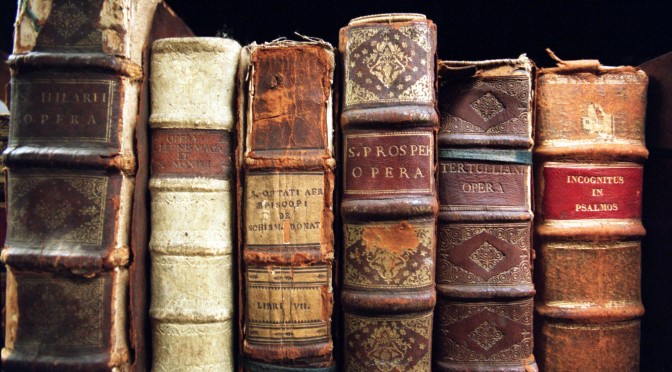
Famous first sentences that are often recited from classic literature include:
‘It was the best of times, it was the worst of times. It was the age of wisdom, it was the age of foolishness, it was the epoch of belief, it was the epoch of incredulity, it was the season of Light, it was the season of Darkness, it was the spring of hope, it was the winter of despair.’ Charles Dickens, A Tale of Two Cities (1859)
‘It is a truth universally acknowledged, that a single man in possession of a good fortune, must be in want of a wife.’ Jane Austen, Pride and Prejudice (1813)
‘Lolita, light of my life, fire of my loins.’ Vladimir Nabokov, Lolita (1955)
‘Mother died today.’ Albert Camus, The Stranger (1942)
The above sentences have become infamous because they are from recognised distinguished works and they encompass the heart of their respective novel within a single sentence. Dickens poetically alludes to the novel’s themes of family, love, hatred and oppression; Austen ironically encompasses the ideology of her characters and the novel’s core narrative drive by foreshadowing the courtship between Elizabeth Bennet and Mr Darcy; Vladimir describes Humbert’s encompassing (though inappropriate) love for his Lolita (Dolores Haze), the melodramatic quality of this line hints towards the character’s obsession, casting a dark mood over the opening page; Camus hooks the reader with what could be considered one of life’s most dramatic moments, the death of a parent. (However, it’s not until lines two-to-six that the reader discovered Mersault’s indifference towards his mother’s death).
It is unlikely that the reader recognises the subtle manipulation of this sentences upon first reading: how the author has introduced their fictional worlds by hinting towards themes, character ideologies or foreshadowing. Dickens and Austen published their infamous works at a time when the purchasing of literature was a luxury. Unlike now where books are readily available and usually affordable, books were produced with the expectation—the intention—that they would be re-read. Therefore, the significance, the pleasure of these carefully crafted lines would not be recognised until a second reading. This practice likely influenced the authors of the twentieth century who sought to replicate this reading experience within their own works of fiction.

Perhaps it is the legacy of these monolithic lines that has caused a mild anxiety amongst contemporary authors when it comes to the meticulous crafting of their own novel beginnings. Stephen King discussed his methodology in an essay for the Atlantic, stating that he can spends months, even years conjuring up the perfect opening sentence.
‘When I’m starting a book, I compose in bed before I go to sleep. I will lie there in the dark and think. I’ll try to write a paragraph. An opening paragraph. And over a period of months and even years, I’ll word and reword it until I’m happy with what I’ve got. If I can get that first paragraph right, I’ll know I can do the book.’
Zadie Smith says, at least hyperbolically, that 80% of her effort goes into the first 20 pages, ‘[once that’s done] everything just flows from there.’
External Pressures
Though the pressure to compete with these legendary authors is enough within itself, new problems have arisen in contemporary publishing. The pressure to produce the ideal first sentence is not only an internal desire of the authors, but external demand from readers and as a result, publishing houses.
With the well-documented shrinking of the publishing industry it is becoming harder and harder for not only emerging writers, but established writers as well to get their work published. This has caused an increase in the demand for works of fiction that can instantly grab the shrinking attention span of the masses. As a society, we are busier than we have ever been before; despite the rise of ‘time-saving’ technology and appliance—from washing machines to smart-phones—we appear to actually have less time as we fill our lives with full-time work, study, fitness programs, family commitments and domestic duties. A human being in 2017 processes more information in a single day than any man or woman would have processed in an entire year in the eighteenth century. When free time does present itself, there are now multiple sources of entertainment at our fingertips: tv, gaming, movies, the internet, social media. All of which are highly interactive.
 If a person can choose between a screen and a book, chances are the screen will win every time. This is why contemporary opening sentence, especially in popular fiction (though this trend include literary fiction as well), has to immediately hook the reader. The sentence must establish a sense of action and intrigue. The reader has to be instantly engaged with the voice, with the character whose world they are about to become a part of. A problem must be immediately identified, even if that problem changes in chapter two. The first sentence, the first paragraph, that first page is the author’s best shot at keeping the reader in the book and away from their smart phone. The more readers they can hook, the more people hear about the book and consequently, more books get sold. That’s the snowball effect.
If a person can choose between a screen and a book, chances are the screen will win every time. This is why contemporary opening sentence, especially in popular fiction (though this trend include literary fiction as well), has to immediately hook the reader. The sentence must establish a sense of action and intrigue. The reader has to be instantly engaged with the voice, with the character whose world they are about to become a part of. A problem must be immediately identified, even if that problem changes in chapter two. The first sentence, the first paragraph, that first page is the author’s best shot at keeping the reader in the book and away from their smart phone. The more readers they can hook, the more people hear about the book and consequently, more books get sold. That’s the snowball effect.
Of course, before a manuscript is even printed, it has to be picked up by a publisher. Publishers are well aware of readers expectations and the changing landscape of literature. They know what they are up against. There are two avenues to traditional publishing, either you can get an agent who will pitch on your behalf, or you submit to open calls A.K.A the ‘slush piles.’ If your lucky enough to get an agent and have your manuscript handed directly to the editor of a publishing house, then congratulations, but remember this: publishing is a business and publishers know that a book is unlikely to do well if the first chapter is a slow burner. An editor’s time is short and they need to be as instantly impressed as any reader. Most publishers want to see the first three chapters of a manuscript before asking for the rest of your novel, and the first thing they are going to read is the first sentence, the first page. If you have fifty manuscripts sitting on your desk, you’re probably not going to read every page. You’re going to read the first page, and if that’s good, you’ll move to the second. If the opening sentence/page isn’t ‘hooky’ enough, or engaging enough, the editor will likely pull out the next manuscript from their towering pile.
If you’ve submitted your work through an open call portal, you’ll be met with a similar conundrum. The entry level staff members who are paid to read manuscript after manuscript looking for the next hopeful best-seller need to be instantly impressed too. These staff members are churning through the company’s large volume of manuscripts as quickly as possible. If that first line doesn’t grab them, like the editor, they too will move onto the next hopeful applicant.
The Emerging of a Formula
When examining the opening lines from recently published novels, a noticeable formula emerges:
‘Wake up, genius.’ Stephen King, Finders Keepers (2015)
‘I woke to the patter of rain on canvas, with the feel of my first husband’s kiss on my lips.’ Diana Gabaldon, The Fiery Cross (2001)
‘The Christening party took a turn when Albert Cousins arrived with gin.’ Ann Patchett, Commonwealth (2016)
These three examples all aim to hook the reader instantly as they simultaneously hint towards character backstory while also started in the middle of action. Virginia Wolf famously said, ‘One longs for a device that is not a trick’ and one could argue that this trend towards catchy and engaging opening lines has become a modern literary parlour trick.
Raymond Chandler is known as the champion of detective crime fiction, but it is unlikely that the opening line of his 1939 classic The Big Sleep would be published today: ‘It was about eleven o’clock in the morning, mid October, with the sun not shining and a look of hard wet rain in the clearness of the foothills.’
The style of Gabaldon’s, King’s and Patchett’s opening lines are vastly different to Chandler’s. The former all begin with a hook or tease that suggests something more. However, these three examples do provide the reader with important information; Gabaldon establishes setting as well as character and backstory, King hooks his readers with what reads like urgent dialogue while hinting at potential character relations and Patchett sets the scene with location and problem: Albert Cousins and his gin are about to change everything. So, it would be dismissive to simply label these lines as mere ‘tricks’.
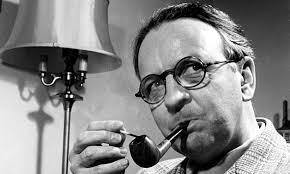
However, Chandler, who published a good sixty years earlier, opens with the weather; a move that strongly goes against Elmore Leonard’s ‘Ten Rules for Writing’. The opening of The Big Sleep is neither good nor bad, but is noticeably different to the other three examples. Though it would have been equally difficult to be published in the 1930s & 40s, this change in trend appears to be less about the preferences of publishing houses and more about the preferences of their readers.
In justification of Chandler’s classic, the novel’s third line neatly meets the requirements of today’s publishing standards: ‘I was neat, clean, shaved and sober, and I didn’t care who knew it.’ Were Chandler submitting to publishers today, and if he exchanged the first sentence for the third, it is likely his work would still find its way onto booksellers’ shelves.
The Reader and The Writer
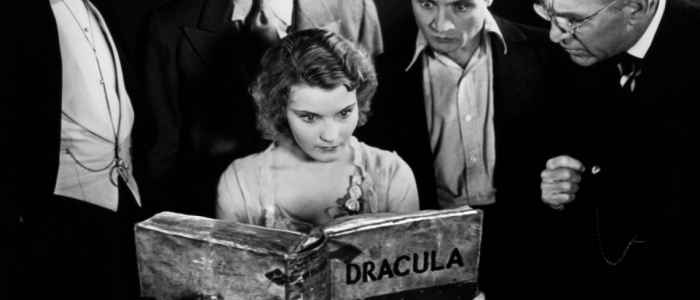
In reality, publishing houses are the middle men between the writer and the reader; this trend towards ‘hooky’ opening lines has formed in response to the market. Today, readers want stories that start with a bang, that hint towards character, backstory and theme. They want page-turning novels that will keep them awake past midnight and into the early morning. They, at least most, do not want fiction that starts with the weather.
Though this could be seen as a depressing factor to a budding author, it shouldn’t. Instead, it is merely a reality that must be accepted. After all, writing is a craft, and the author is still required to construct a beautiful and telling open sentence, only now the focus has shifted. Rather than hinting towards theme or mood, like Austen or Dickens once did, the author is encouraged to establish some form of intrigue (whether it be through a problem or starting in the of middle of an action scene). And of course, a good writer can still establish theme or mood while also meeting the requirements of a ‘hooky’ opening sentence.
Works Cited
Charles, D. (1942). A Tale of Two Cities. New York, Dodd, Mead & Co.
Austen, J. (1995). Pride and prejudice. New York, Modern Library.
Nabokov, V. (1995) Lolita. London, Penguin.
Camus, A. (1988) The Stranger. New York, Cambridge University Press.
Fassler, J. (2013) Why Stephen King Spends ‘Months, even Years’ Working on Opening Sentences. The Atlantic. Available from: https://www.theatlantic.com/entertainment/archive/2013/07/why-stephen-king-spends-months-and-even-years-writing-opening-sentences/278043/
New York University (2013) Salon Series: A Conversation with Zadie Smith and Jeffrey Eugenides, New York University. Available from: https://www.youtube.com/watch?v=FvvjWhFlV38&t=165s
King, S. (2015) Finders Keepers. New York, Scribner.
Gabaldon, D. (2001) The Fiery Cross. London, Penguin.
Patchett, A. (2016) Commonwealth. New York, Great Britain.
Chandler, R. (1939). The Big Sleep. London, Penguin.
Leonard, E. Elmore Leonard: 10 Rules for Good Writing. Gotham Writers. https://www.writingclasses.com/toolbox/tips-masters/elmore-leonard-10-rules-for-good-writing
What do you think? Leave a comment.



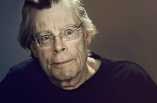

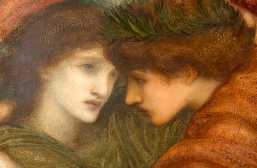

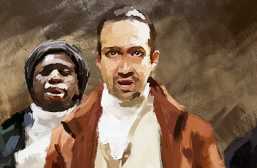
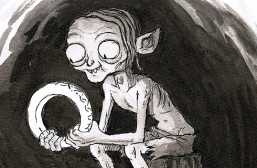


“It was a cold October morning in Paris and even colder for a man about to be executed by the firing squad.”
A personal favorite of mine. I know many will dismiss it for being a thriller and thus somehow unworthy of being considered as ‘proper’ literature or will dismiss it based on the politics of it’s author but I really don’t care.
What a well written and enjoyable article, thanks!
I’m so glad you enjoyed it Linnie!
I’ve been addicted to Anthony Burgess since the opening line of Earthly Powers hit me between the eyes:
– It was the afternoon of my eighty-first birthday, and I was in bed with my catamite when Ali announced that the archbishop had come to see me.
This is really insightful, thank you for sharing
Thank you for taking the time to read the article, glad you enjoyed it. 🙂
Thanks for this great article! I especially enjoyed seeing things from a publisher’s perspective.
Opening line that recently blew me away, Tony O’Neill’s “Seizure Wet Dreams”
“Got so high in NYC that I bugged, and they found me in a bodega in Spanish Harlem – naked, paranoid, and hysterical – trying to hide myself behind displays of beef jerky and porno magazines, screaming about how the government and the DEA are all on my tail.”
Or a classic – Charles Bukowski’s “Post Office”
“It started as a mistake.”
To go slightly off-topic my favourite first line from a song has got to be Paul Simon’s ‘When I think back on all the crap I learnt in high school/ It’s a wonder I can think at all’. I have mentally quoted that one many times.
As far as novels go there is of course good old ‘Jane Eyre’ and ‘Pride and Prejudice’ that stick in the mind: ‘There was no possibility of taking a walk that day’; ‘It is a truth universally acknowledged that a single man in possession of a good fortune is in want of a wife’. That was from memory so it may not be word for word, but does illustrate their memorableness.
I have a friend who’s obsessed with the first lines of poems. One that I remember (it’s more of a first sentence really, but I love it so I’m quoting it anyway) is from one of Shakespeare’s sonnets: ‘When my love swears that she is made of truth/ I do believe her, though I know she lies,/ That she might think me some untutored youth/ Unlearned in the world’s false subtleties’. The only Shakespeare that’s ever made me laught out loud.
How can you not read the whole book after reading these first lines?
I know Chanta! And that’s exactly what publisher are betting on.
Loved reading first lines, some familiar, some not, some inspiring, some not to my taste.
“I first heard Personville called Poisonville by a red-haired mucker named Hickey Dewey in the Big Ship in Butte.”
“In order that we may start afresh, and go to Meg’s wedding with free minds, it will be well that we start with a little gossip about the Marches.”
My personal favourites, one very masculine and one very feminine.
Great first line from Little Women!
Here’s the opening of my favourite novel, Tom Jones: “An author ought to consider himself not as a gentleman who gives a private or eleemosynary treat, but rather as one who keeps a public ordinary at which all persons are welcome for their money.” Could be a criterion for judging Booker Prize candidates?
One of my favorite opening sequences is from Salinger’s The Catcher in the Rye: “If you really want to hear about it, the first thing you’ll probably want to know is where I was born, and what my lousy childhood was like, and how my parents were occupied and all before they had me, and all that David Copperfield kind of crap, but I don’t feel like going into it, if you want to know the truth.” It has a certain style to it.
I enjoyed this article! It illuminates a whole new perspective on opening lines that I had not previously considered.
One of my all time favourite first lines has to be from Jane Austen’s ‘Pride and Prejudice – a book I read as a school girl, but lines that I still remember many years later: “It is a truth universally acknowledged, that a single man in possession of a good fortune must be in want of a wife.”
A very thought provoking piece!
Nothing tops Fahrenheit 451:
“It was a pleasure to burn.”
That’s just a matter of preference.
What makes a good first line? The most common reason that comes up runs something like, it makes you want to keep reading: as good a reason as any. But are there any others…
Thanks for this article – nothing like a beautifully curated article to make me waste all morning looking up the books to make sure I’m clever enough to recognise them all….can the author do another one on last lines? Please?!
Hi Bryce, what a wonderful idea! Thanks for the suggestion.
Mustn’t belittle the line that made monster mayhem part and parcel of daily life. “It was on a dreary night of November that I beheld the accomplishment of my toils.” Frankenstein, Chapter 5
Very insightful. It’s interesting how you’ve shown that the importance of the opening line has shifted rather than betting a completely modern invention. I’ve read a few books lately that have had amazing openers and then fizzled out as they went along; the downside of an obsession with opening hooks.
A well written and useful article re the societal shift reflected in the opening lines of literature.Thankyou for taking the time and effort to write the article in, what you so eloquently describe, is our regularly rushed lives.
Hi Toula, thanks for taking the time to comment! Glad you enjoyed the article 🙂
Hmmm…where are the opening lines? Are they the book’s title? Is it perhaps the name of the bookstore you bought it in? Is it the translator’s preface? Aren’t these legitimate parts of the book, engaged with as part of the literary process?
‘Chapter one’ and ‘a book’s beginning’ are not always equivalent terms…
Should we judge a book by its opening line?
Yes 🙂
My favourite worst opening line (cribbed from Euripides, I think) is, “We are men with large erections. We roam around the city, taking what we want.”
As we’re talking about fiction, here’s the opening line from my favourite fantasy book:
“In the beginning God created the heaven and the earth.”
Very interesting read. I will be more careful to note the artistic craft of the first line in the next fiction I read. As a visual artist, I see the value in making a picture grab the viewer’s attention immediately, otherwise, no matter how strong the craft, you’ve lost your audience. I see a creative writer has the same challenge, too. Well-done!
Interesting topic and helpful to consider as I begin crafting my own works. Although I do wonder, as a reader, why we are still intrigued and inclined to read classics even though they are considerably less “hooky” in the beginning. Even though our lifestyles and reading styles are changing we are still able to generate interest and motivation for indulging in classic literature despite, in many cases, a slow beginning. Are we able to focus more intently simply knowing that the writing style of classics is different and more challenging than contemporary fiction? If not, is there still an opportunity in modern writing to adhere to the historic writing style, with a “weather descriptor opening”, and still intrigue other readers?
Thought provoking article!
I agree that the intriguing hook is often necessary, especially when the writer is still in their early career and needs to convince the editor/reader to keep going. I’d also say, we’re gun-shy about using weather as an opener partly because of sentences like the one which inspired the Bulwer-Lytton contest (‘It was a dark and stormy night’). These are easy to make fun of. Maybe future generations will make fun of the intriguing hook.
Thanks, Tara. Keep up the great articles.
This article is perfectly timed as I make my first attempt at writing a novel. I was considering earlier today that Jon McGregor’s opening of ‘If Nobody Speaks of Remarkable Things’ is fairly terrific: “If you listen, you can hear it”. Lovely. Addressing the reader and making them wonder what they should be hearing is a great start, eh?
Weighting the first line in a novel as the measure of its worth seems an unproven and superstitious belief. The first page and chapter/section should be the most edited, most revisited, and crafted pages. It is here that the tone is established and the narrative is launched – this needs to engage the reader.
The belief in first lines has gained traction because it absolves and explains how publishing houses from lack of time or without staff having the necessary critical skills miss ‘publishing opportunities’: an excuse becomes the reason, and the writer is seen to be at fault.
I did like the last 2/3rds of Commonwealth, I thought the opening scene was too staged and at odds with what happens. Characters at the christening were not themselves, I felt hoodwinked by the narrator. It was as if a short story had been cobbled onto the front of the book. In the later stages, when the history is shared, the tension and reveal is terrific. A more evolved structure could have been used.
I really enjoyed Commonwealth, by now that you mention it, the opening was pretty staged. Once I got past the first few chapters though, I couldn’t put it down!
What a lovely article! If you wrote one comparing first to last lines you’d have at least one reader in me!
Thanks for the interesting and timely article. You could spend bookoos of time on this topic and probably not cover every angle. For instance, as a writer, I sometimes find myself paralyzed because I don’t feel my opening line or sentence is “good enough.” I wonder, is trying to come up with a “hooky” first line worth that pain, or should today’s writers simply jump in, get it written, and think about hooks later?
I also loved what you said about the competition between the book and the screen. It’s true the screen usually wins, but I think that’s because readers instinctively know they’ll have to invest more time in a book. When somebody sits down to pick up a book, yours truly included, it’s usually at a time when the frenetic pace of life has momentarily calmed down. In those cases, you want to relax, but you also want to be hooked. That’s a tall order for a book to fill, whether in paperback or on an e-reader. “Screen” pursuits like movies and TV usually don’t have that responsibility; they’re expected to entertain, but also to kill time.
This is so true. Writing will never be the same way again because everything has to be so intense or so perfect. The people who wrote all the “classics”, ironically, never would’ve gotten away with their style of writing in the present day!
I agree that over time opening sentences have changed. I enjoyed reading your choices. We covered ‘opening sentences’ in one of my units at university. One of the most used and best well known opening sentences is in fairy tales, ‘Once upon a time in a land faraway…’ This sentence has seen variations over the years, such as ‘Long ago in a galaxy faraway…’, from Star Wars. This sentence as an opener is cliche, but it is a classic and it is still an enticing hook. I have read and heard this sentence integrated into other parts of a story, novel or film in recent times. Thanks for the interesting information, pictures and references.
Thanks for such a great advice. As an academic author, I am so tired of reading “The purpose of this paper is to…” Us academics can learn to write better opening lines and paragraphs.
Thank you jdumay! Yes, I’m an academic author too, so I can totally relate! So pleased that you enjoyed the article and good luck with your writing. 🙂
its such a helpful article especially to beginner writers who wants to learn more in writing and blogging.
Keep it up
I am so glad you enjoyed the article! Thank you for commenting, I appreciate the feedback.
That was really a very helpful and informative post!
Every bit of it is truly valuable. Thank you so much for sharing.
Very interesting article! It made me think about Patrick Rothfuss’s Name of the Wind. Both of his books in this series so far start the same, and if it hadn’t been so highly recommended to me I might’ve put it down after the first page. It’s a very slow and laboriously descriptive start, but it’s also one of contemporary fantasy’s most loved books. It’s one of my favorites now, but it took me a good chapter to really fall into it. Maybe this publishing phenomenon differs in genre fiction?
Opening lines are crucial, it is that which determines whether a reader read a book, or pass on it. That being said opening lines can sometimes be deceptive. In my lifetime I have read books in which the opening lines were brilliant and the remainder of the book not so much and vice versa. I would recommend reading at least three pages of every new book before making the do or don’t decision.
This article is really interesting, and it documents some things I’ve noticed in my own reading. In one of my creative writing classes in college, the professor asked us to bring an opening line to one of our favorite books, and many brought contemporary first lines that were short and “punchy.” I brought the opening line of Oliver Twist, which is a solid paragraph. It was likely lengthier than all the others combined, yet it has a richness and depth to it that gently invites the readers into the book (as opposed to reaching out and “grabbing” them). I may have received some strange looks that day in class, but I can’t help but wonder, are we losing something valuable when we try only to appease our short reading spans instead of letting our writing gently unfold?
Opening lines are crucial to engage the reader’s curiosity, as in 100 Years of Solitude: “Many years later, as he faced the firing squad, Colonel Aureliano Buendía was to remember that distant afternoon when his father took him to discover ice.”